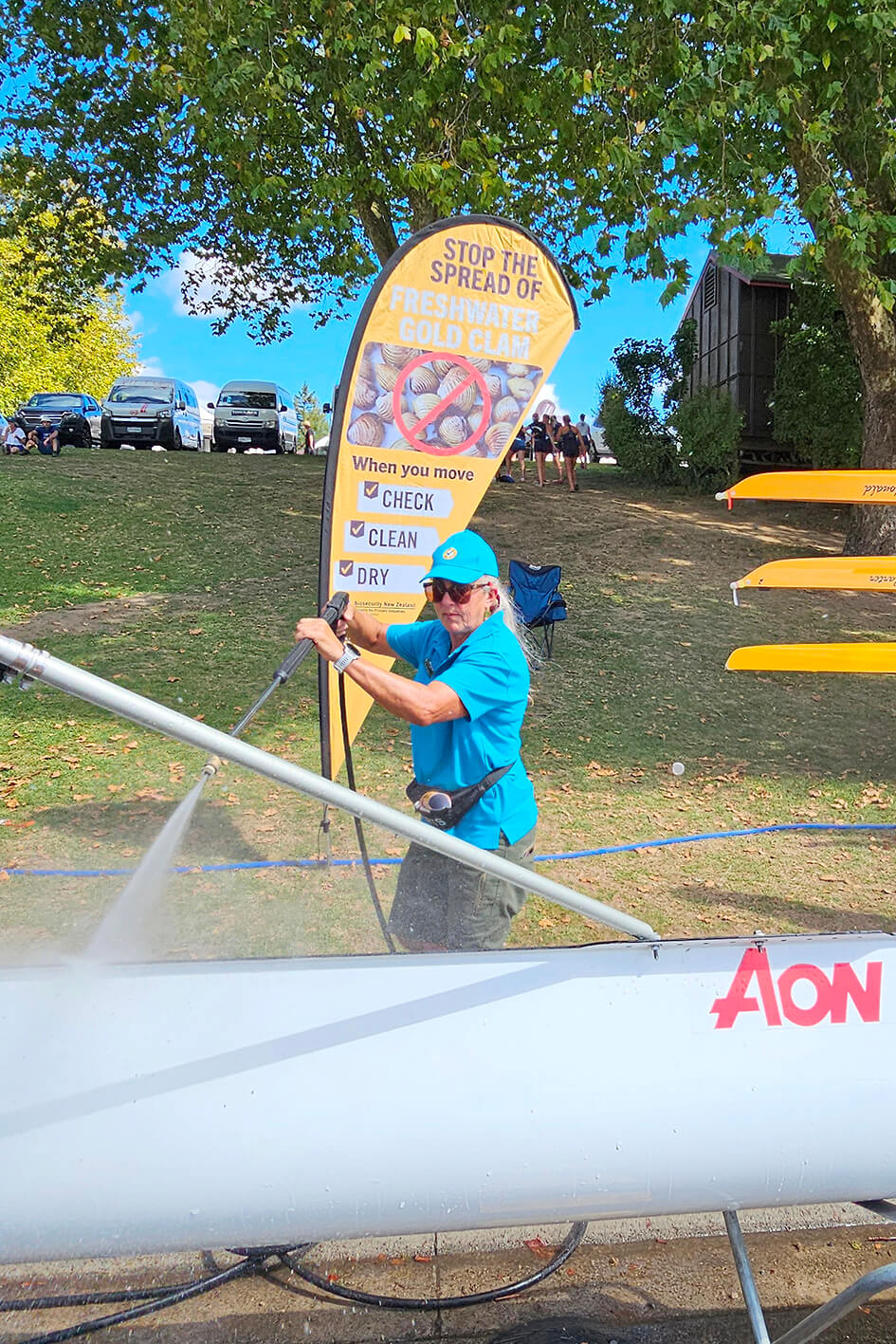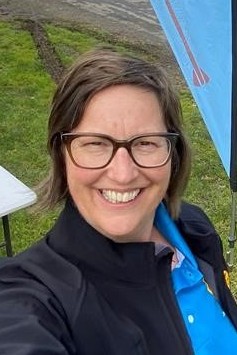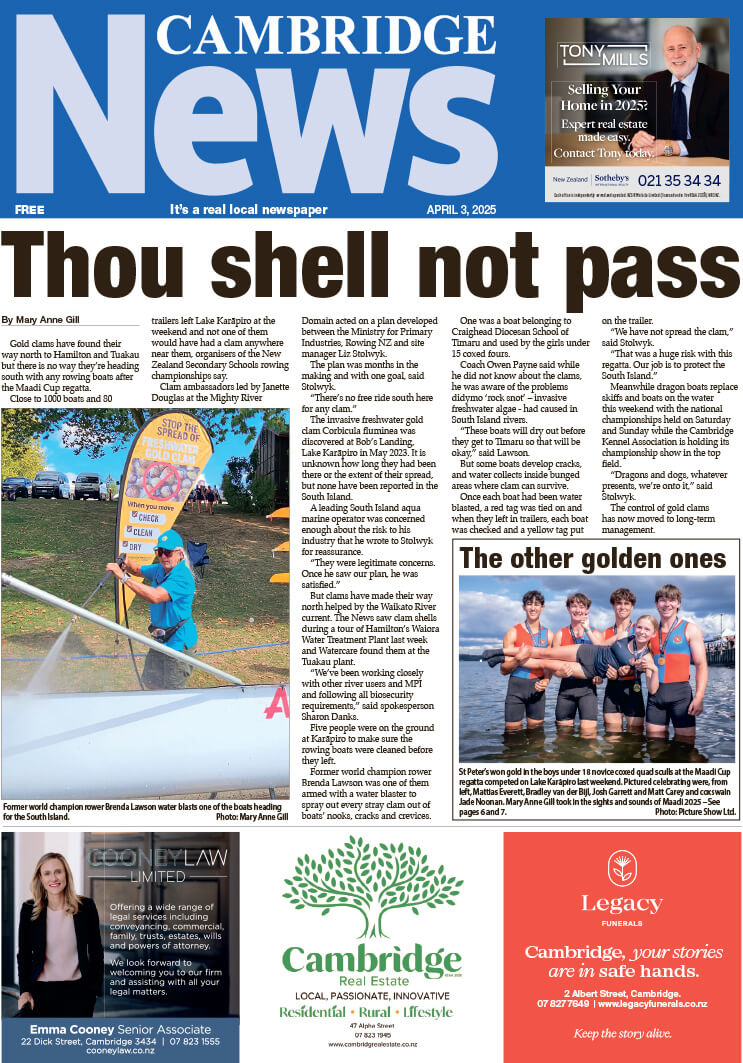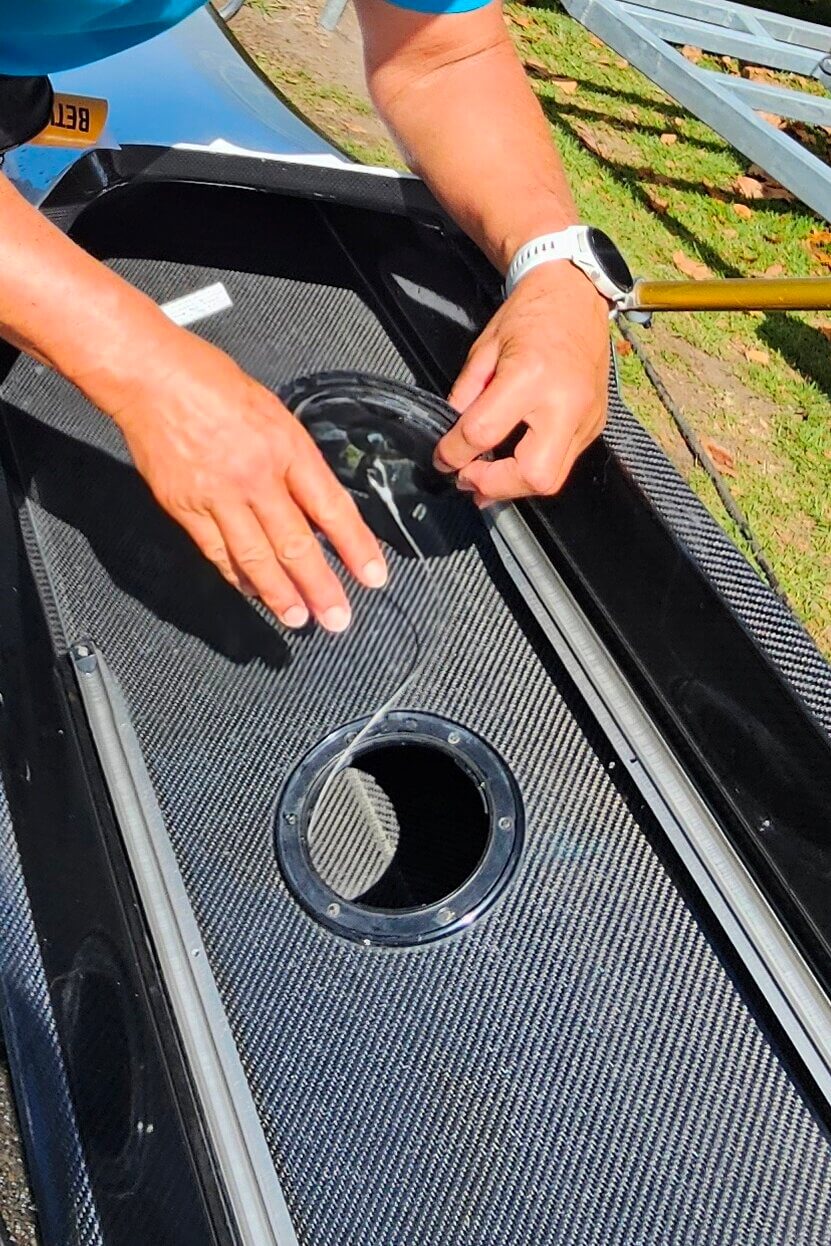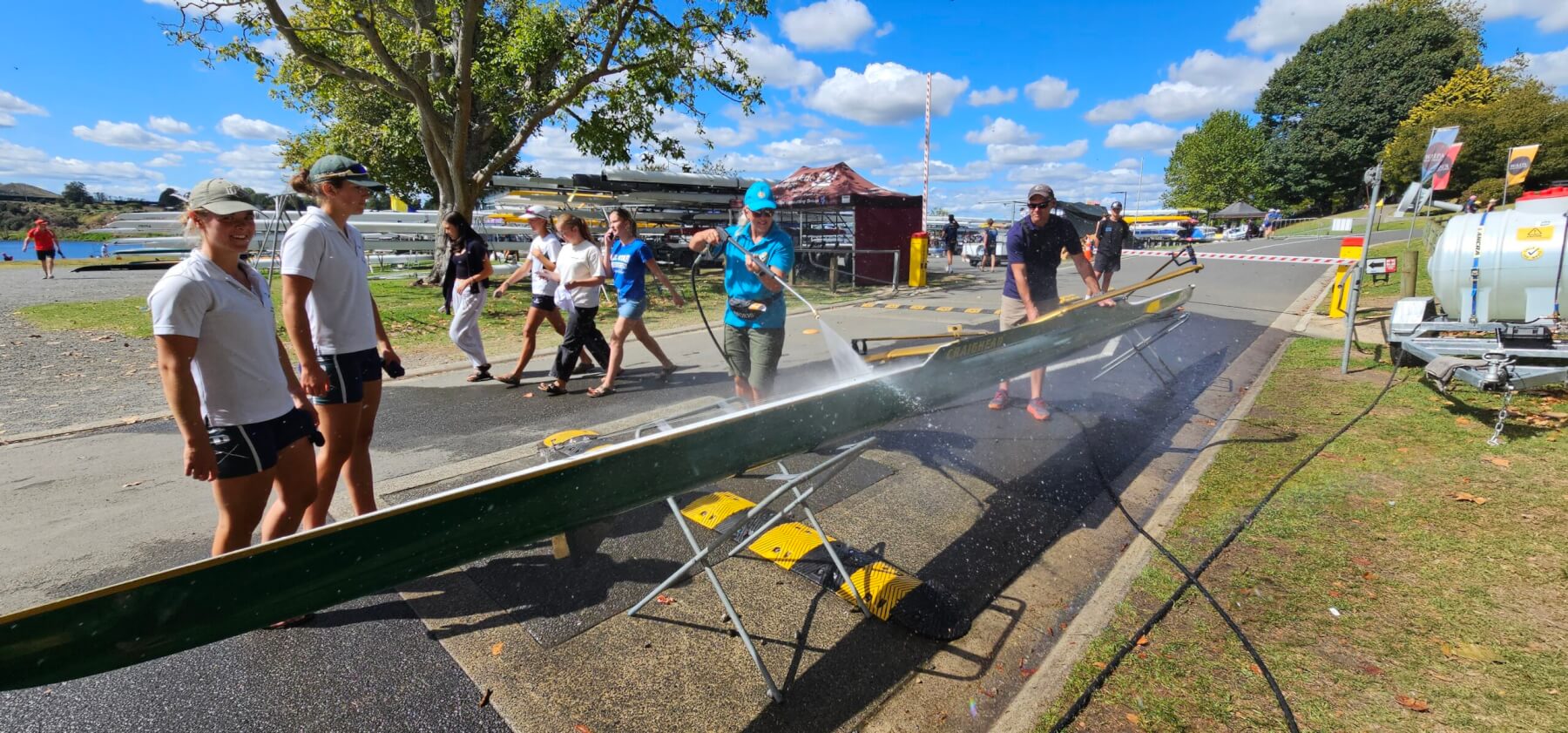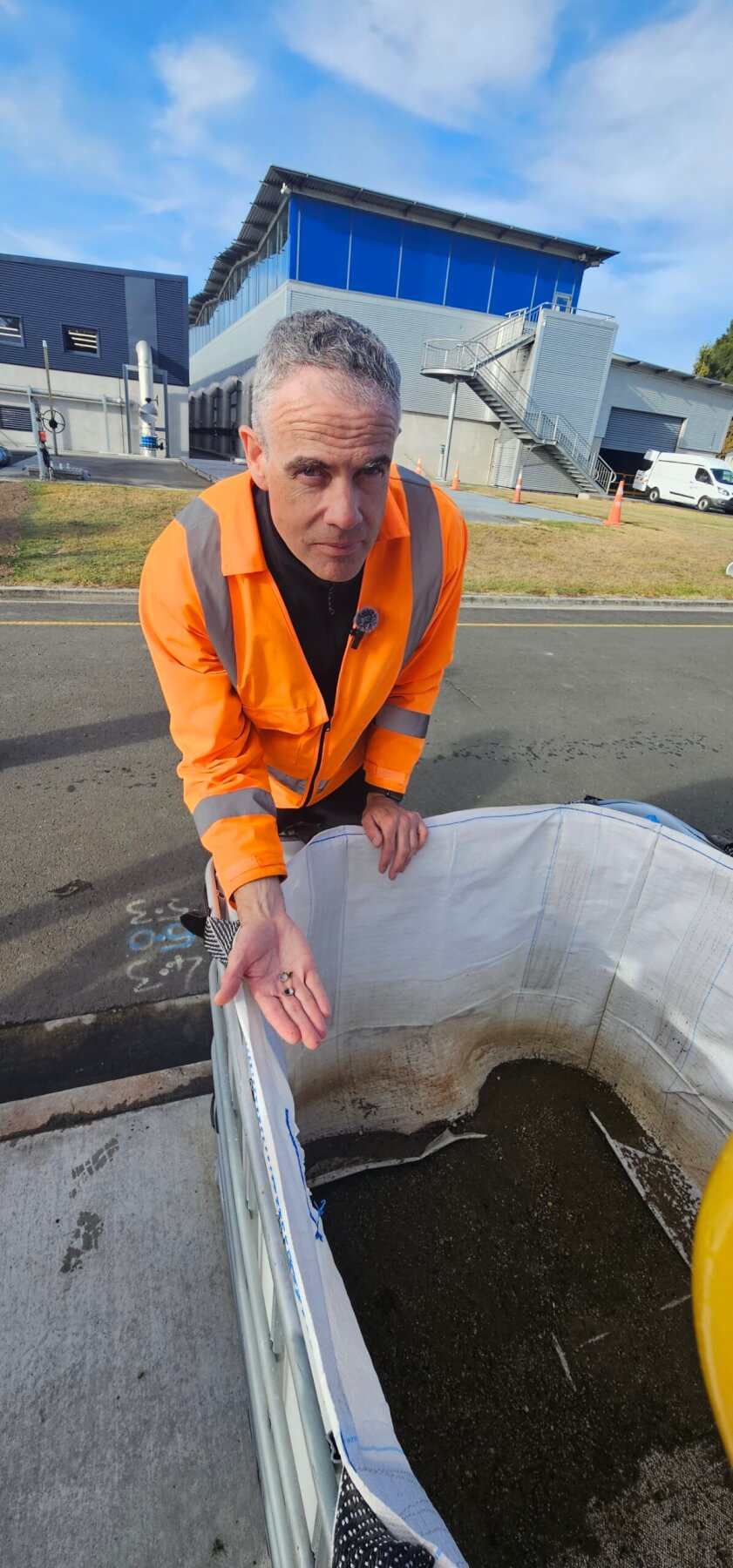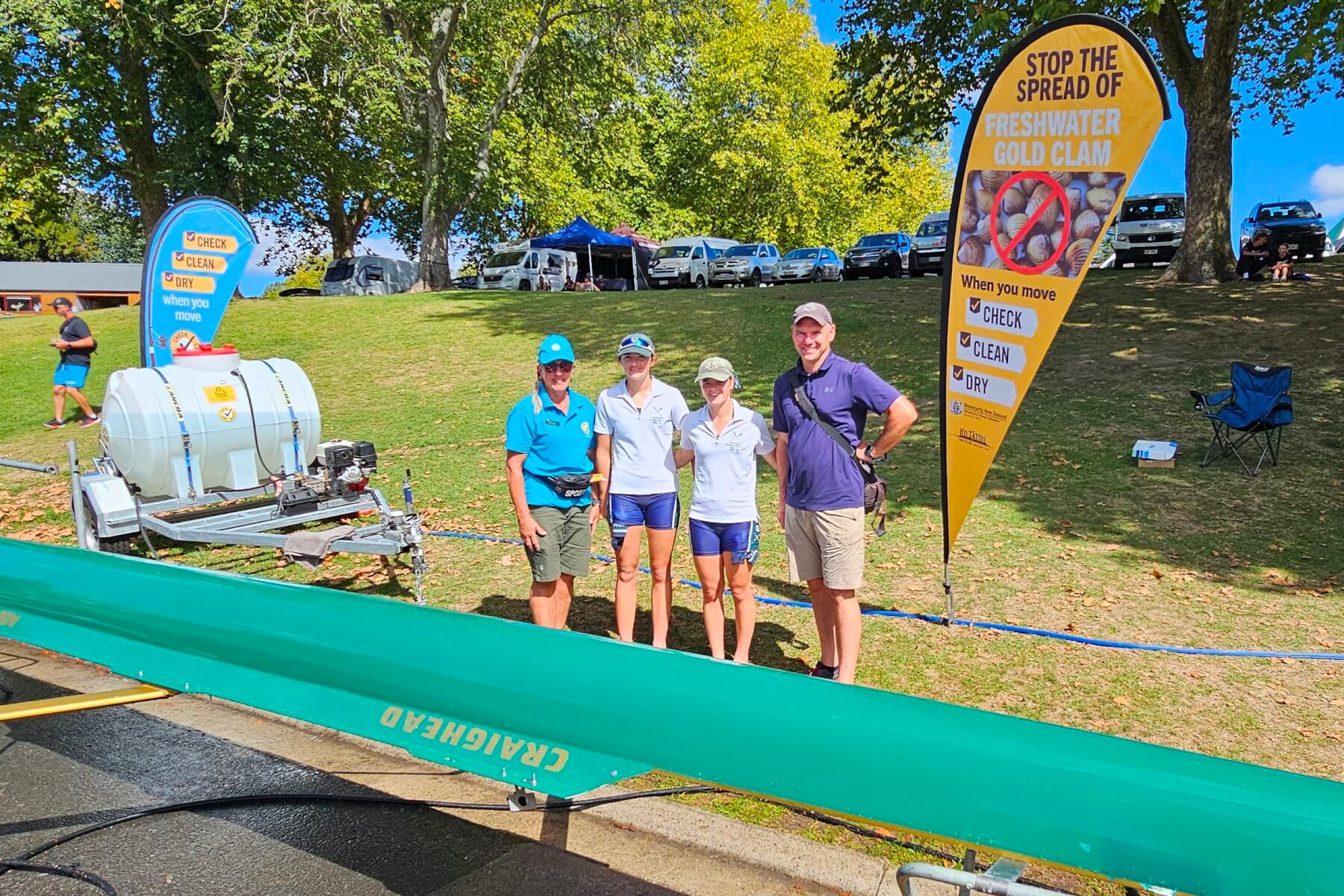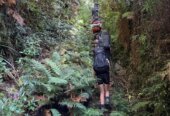Gold clams have found their way north to Hamilton and Tuakau but there is no way they’re heading south with any rowing boats after the Maadi Cup regatta.
Close to 1000 boats and 80 trailers left Lake Karāpiro at the weekend and not one of them would have had a clam anywhere near them, organisers of the New Zealand Secondary Schools rowing championships say.
Clam ambassadors led by Janette Douglas at the Mighty River Domain acted on a plan developed between the Ministry for Primary Industries, Rowing NZ and site manager Liz Stolwyk.
The plan was months in the making and with one goal, said Stolwyk.
“There’s no free ride south here for any clam.”
The invasive freshwater gold clam Corbicula fluminea was discovered at Bob’s Landing, Lake Karāpiro in May 2023. It is unknown how long they had been there or the extent of their spread, but none have been reported in the South Island.
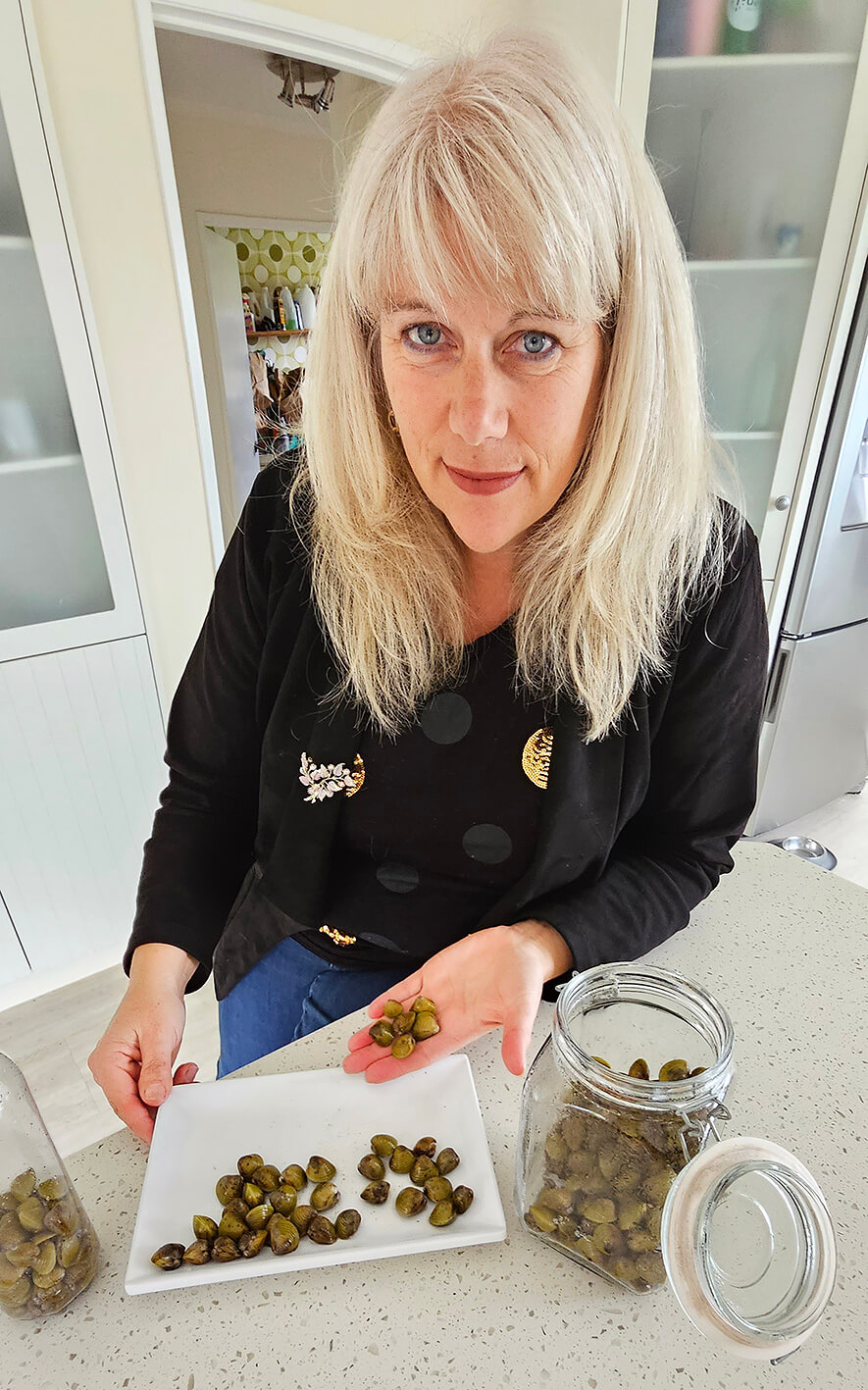
Karāpiro Domain site manager Liz Stolwyk with clams she removed from the boat ramp last year. Photo: Mary Anne Gill
A leading South Island aqua marine operator was concerned enough about the risk to his industry that he wrote to Stolwyk for reassurance.
“They were legitimate concerns. Once he saw our plan, he was satisfied.”
But clams have made their way north helped by the Waikato River current. The News saw clam shells during a tour of Hamilton’s Waiora Water Treatment Plant last week and Watercare found them at the Tuakau plant.
“We’ve been working closely with other river users and MPI and following all biosecurity requirements,” said spokesperson Sharon Danks.
Five people were on the ground at Karāpiro to make sure the rowing boats were cleaned before they left.
Former world champion rower Brenda Lawson was one of them armed with a water blaster to spray out every stray clam out of boats’ nooks, cracks and crevices.
One was a boat belonging to Craighead Diocesan School of Timaru and used by the girls under 15 coxed fours.
Coach Owen Payne said while he did not know about the clams, he was aware of the problems didymo ‘rock snot’ – invasive freshwater algae – had caused in South Island rivers.
“These boats will dry out before they get to Timaru so that will be okay,” said Lawson.
But some boats develop cracks, and water collects inside bunged areas where clam can survive.
Once each boat had been water blasted, a red tag was tied on and when they left in trailers, each boat was checked and a yellow tag put on the trailer.
“We have not spread the clam,” said Stolwyk.
“That was a huge risk with this regatta. Our job is to protect the South Island.”
Meanwhile dragon boats replace skiffs and boats on the water this weekend with the national championships held on Saturday and Sunday while the Cambridge Kennel Association is holding its championship show in the top field.
“Dragons and dogs, whatever presents, we’re onto it,” said Stolwyk.
The control of gold clams has now moved to long-term management.



